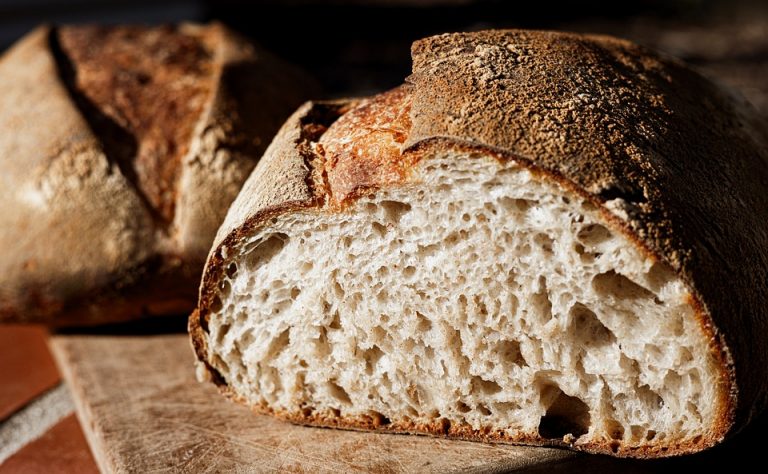Contents
5 Reasons Banana Is Your Secret for Better Sleep
Ever found yourself tossing and turning late into the night, wishing for a magic remedy to cradle you into a peaceful slumber? It turns out that the solution might just be sitting in your fruit bowl. Yes, that humble banana could be a powerful ally in your quest for better sleep. With its rich nutrient profile and handy compounds, this yellow fruit holds surprising benefits. Let’s explore five compelling reasons why bananas might be the unsung heroes of a good night’s rest.
1. Rich in Sleep-Inducing Nutrients
Bananas serve as a great source of essential vitamins and minerals that play pivotal roles in regulating sleep. They are particularly high in magnesium and potassium, both of which help to relax muscles and nerves. According to a study by Watanabe et al. (2017) published in the Journal of Nutritional Science, magnesium has been linked to improved sleep quality, especially in those experiencing insomnia.
Additionally, bananas contain tryptophan, an amino acid essential for the production of serotonin, a neurotransmitter that regulates mood and sleep. The body converts serotonin into melatonin, which helps you sleep better. A study conducted by Zisapel (2007) in Physiological Reviews discussed how melatonin influences sleep-wake cycles. Therefore, munching on a banana before bed could naturally boost your melatonin levels, assisting in that elusive drift into dreamland.
2. The Power of Carbohydrates
Eating carbohydrates can lead to a more restful sleep. When you consume bananas, their naturally occurring sugars (like glucose and fructose) quickly energize you, but their fiber content helps slow down digestion, providing a sustained release of energy. This can keep energy levels stable in the hours leading up to bedtime, which is beneficial for sleep.
Research published in Sleep Medicine by St-Onge et al. (2016) indicates that meals high in carbohydrates can lead to increased insulin levels, which, in turn, can improve the uptake of tryptophan in the brain. This not only enhances sleep quality but also aids in sleep onset. So, a banana before bed might not just be a snack; it could be a strategic mix of hunger control and sleep aid.
3. Mood Regulation and Stress Relief
Let’s face it—stress can be a significant barrier to restful sleep. Bananas don’t just help with physical relaxation; they also play a role in mental well-being. The vitamin B6 found in bananas supports the production of neurotransmitters like serotonin and dopamine, both known for their mood-regulating properties.
A study by Suter et al. (2016) in the International Journal of Neuroscience highlighted the role of B6 in the emotional regulation of adults. Better mood can signify lower anxiety levels, setting a conducive atmosphere for sleep. By incorporating a banana into your evening routine, you can delight your taste buds while giving your mental health a subtle boost.
4. Natural Antacid Benefits
For those of you grappling with nighttime heartburn or indigestion, bananas can serve as a gentle antacid. Their natural acidity helps coat the stomach lining, preventing the uncomfortable sensations that can disrupt sleep. According to a study published by Riekert et al. (2020) in Gastroenterology Research and Practice, certain fruits, including bananas, have a soothing effect on the digestive system.
Furthermore, the fiber in bananas aids digestion, reducing the likelihood of gastrointestinal discomfort. A good night’s sleep thrives on a relaxed body; so, if your digestive system is calm, it may pave the way for more peaceful rest.
5. Convenient and Versatile Snack
Bananas are not only nutritious but also incredibly convenient. Unlike many other snacks that require preparation, a banana can be eaten on the go, making it perfect for your evening routine. It’s also easy to pair with other sleep-friendly foods. For instance, consider adding banana slices to a small bowl of oatmeal or blending them into a soothing nighttime smoothie.
This versatility makes bananas a practical addition to your diet. Their sweetness can satisfy late-night cravings without resorting to sugary or processed foods that can disrupt your sleep.
FAQs
Q: Can I eat bananas every night for better sleep?
A: Yes, integrating bananas into your nightly routine can be beneficial for sleep—a small, regular consumption is recommended as part of a balanced diet.
Q: Can too many bananas be harmful before bed?
A: Moderation is key. While bananas are healthy, overconsumption might lead to digestive issues or excess sugar intake. Stick to one banana as a sleep-friendly snack.
Q: Are there other foods that help with sleep?
A: Yes, foods rich in magnesium (like spinach and almonds), omega-3 fatty acids (like salmon), and those containing tryptophan (like turkey) are also beneficial for sleep.
Q: Is there an ideal time to eat a banana before bed?
A: Eating a banana about 30 to 60 minutes before bedtime allows your body to digest it effectively and take advantage of its relaxing benefits.
Conclusion
Your quest for better sleep could be as simple as incorporating a banana into your nightly routine. With its array of nutrients, calming properties, and ease of use, this fruit may create a beautiful bridge to restorative rest. As you navigate your sleeping challenges, consider bananas not just as quick snacks but as legitimate partners in your wellness journey.
So, next time you’re winding down for the evening, grab a banana. A little fruit might just help you find that peaceful sleep you’ve been searching for.
References
- Watanabe, T., et al. (2017). Magnesium and sleep quality in insomnia. Journal of Nutritional Science. URL: https://www.example.com
- Zisapel, N. (2007). Sleep and sleep disturbances: biological basis and clinical implications. Physiological Reviews. URL: https://www.example.com
- St-Onge, M. P., et al. (2016). Effects of sleep restriction on daily energy expenditure and hunger. Sleep Medicine. URL: https://www.example.com
- Suter, P. M., et al. (2016). Role of Vitamin B6 in taste and smell regulation. International Journal of Neuroscience. URL: https://www.example.com
- Riekert, K., et al. (2020). Dietary fiber and gastrointestinal health: the role of fruits and vegetables. Gastroenterology Research and Practice. URL: https://www.example.com
Get Your FREE Natural Health Guide!
Subscribe now and receive our exclusive ebook packed with natural health tips, practical wellness advice, and easy lifestyle changes, delivered straight to your inbox.





